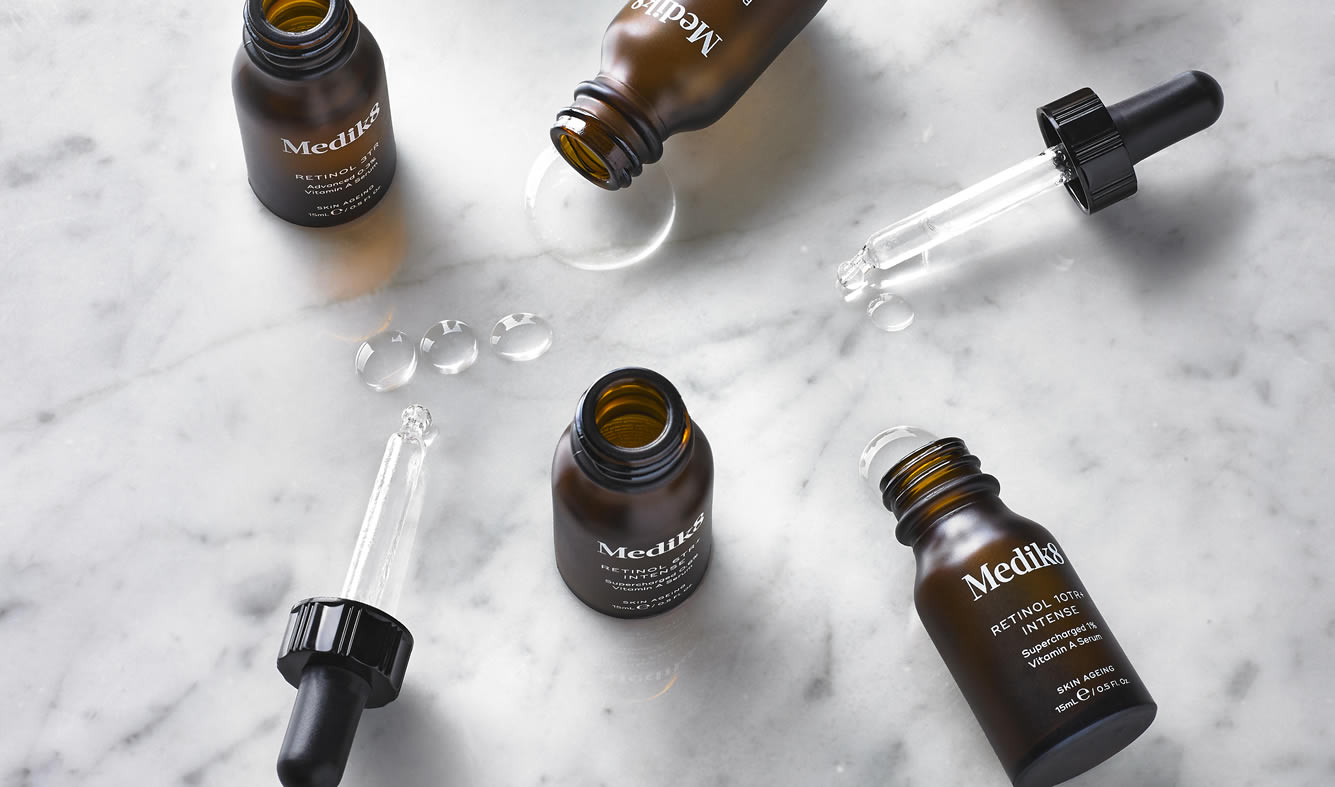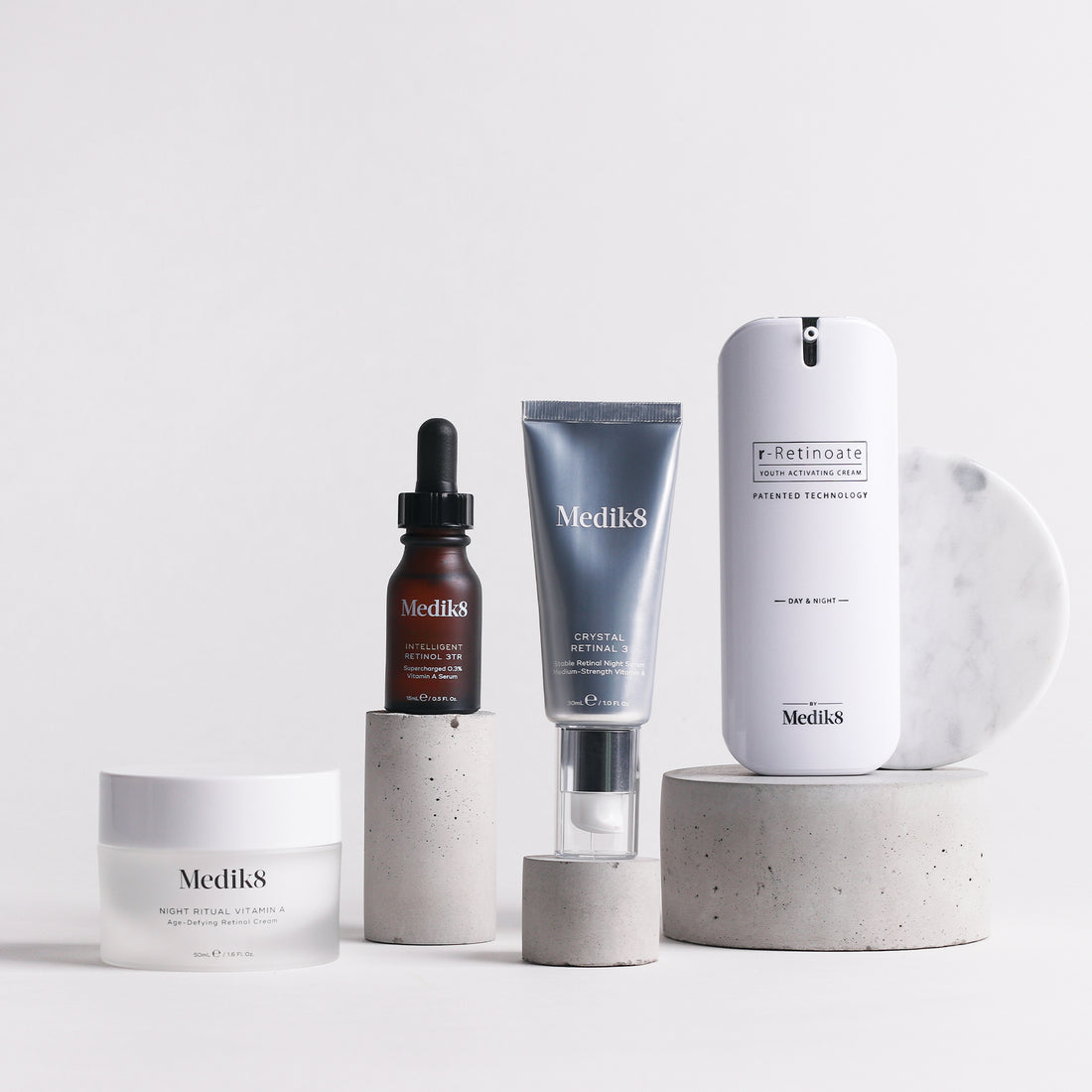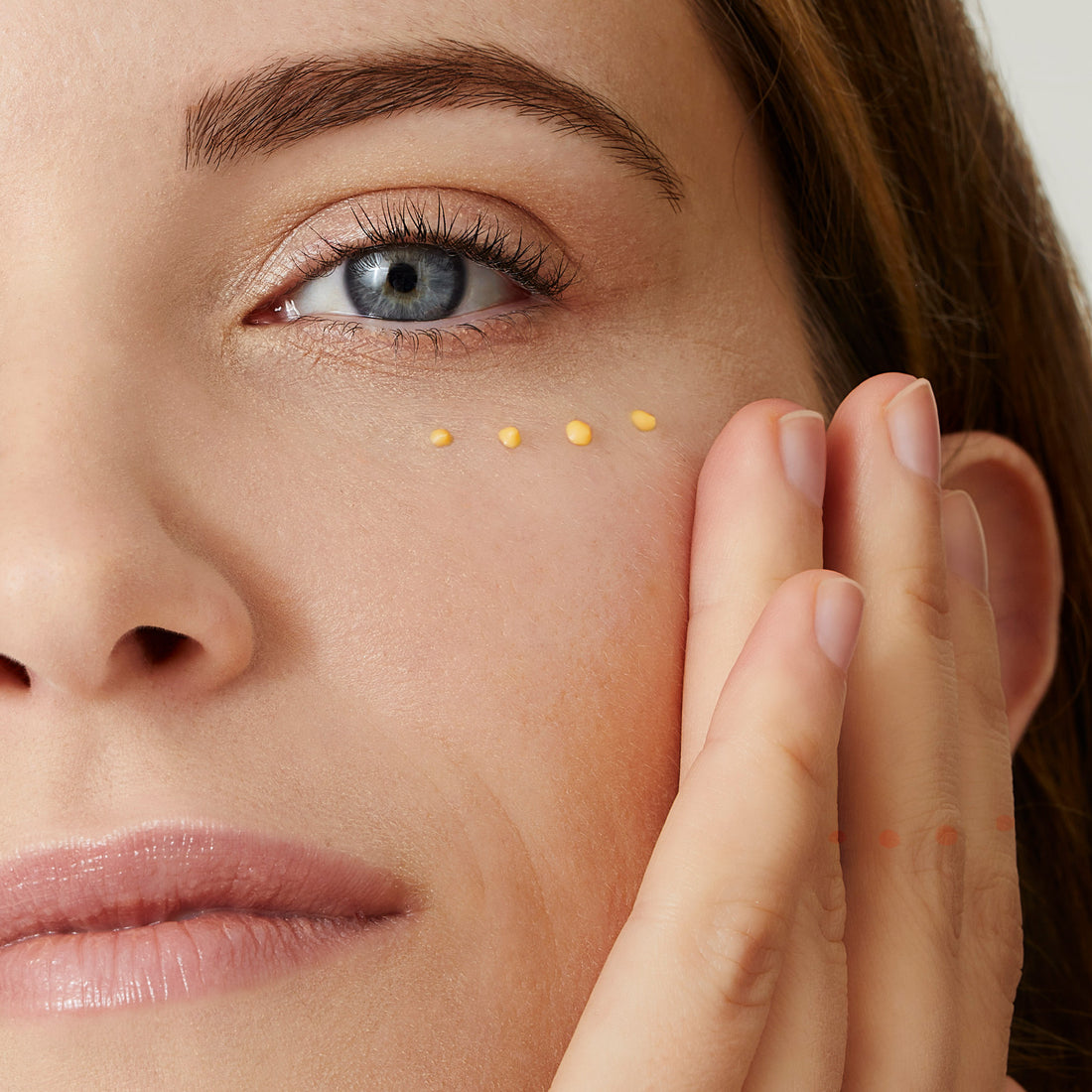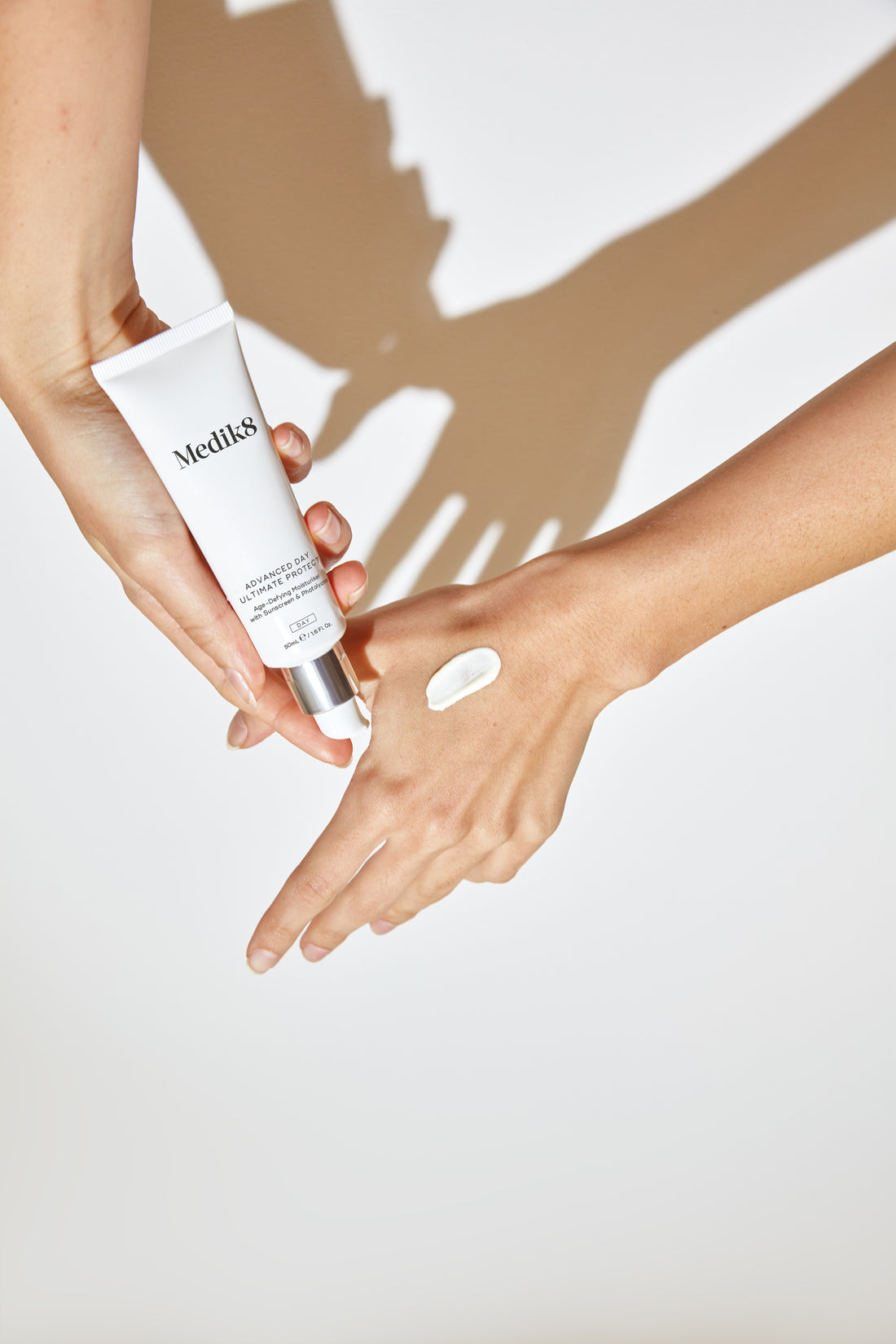Is It Safe To Use Retinol in Summer?
Written by: Heleayner Davies
Updated on: 30 April 2024

Known for helping to reduce the appearance of fine lines and wrinkles, support collagen production and visibly firm the skin, it's no wonder retinoids (vitamin A) have become incredibly popular in the world of skincare.
However, should you really be using vitamin A in the summer? Although it can increase your skin’s sensitivity to the sun’s harmful UV rays, vitamin A is an essential part of our innovative CSA Philosophy (vitamin C plus sunscreen by day, vitamin A by night) for healthy, youthful-looking skin. As long as you use it correctly, there’s no need to avoid using vitamin A in the summer. In fact, we recommend using it 365 days a year.
Discover how to safely and effectively use vitamin A in the summer, and how to use it correctly for a healthy, radiant and youthful-looking complexion all-year-long.
What are retinoids?
‘Retinoids’ is the umbrella term for all vitamin A molecules in their various forms (including retinol and retinal). They are popular for their age-defying properties, and they work by increasing collagen production and skin cell regeneration which helps to smooth the appearance of fine lines and wrinkles, uneven skin tone and texture while helping to visibly fade dark spots for a more even and youthful-looking complexion. At Medik8, we work with 3 main types vitamin A molecules; retinol, retinaldehyde (retinal) and retinyl retinoate.


The truth about retinoids and sun exposure
Vitamin A works by helping to speed up the rate of skin cell turnover to reveal new, fresh cells underneath. It therefore makes your skin more sensitive to the sun’s harmful rays, and can increase your risk of sunburn if you don’t apply sunscreen. Many retinoid formulas aren’t photostable and break down when exposed to UV rays - making them less potent and inactive on the skin. As a result, we only recommend applying vitamin A in your evening skincare routine. The only exception to this is r-Retinoate Day & Night serum which contains retinyl retinoate - a photostable ingredient that doesn’t become inactive when exposed to the sun.
So, can you use retinol in the summer?
Provided that you always apply sunscreen the morning after using retinoids, it is perfectly safe to use vitamin A throughout the summer months. For your healthiest, most radiant-looking skin we always recommend to follow our clinically proven CSA Philosophy which combines vitamin C plus sunscreen by day, and vitamin A by night. At Medik8, we believe that all skincare regimes should begin with these 3 fundamental formulas, no matter the season.

What about retinaldehyde?
Retinal (also known as retinaldehye) is a derivative of vitamin A which is relatively new to the market. It has been proven to act 11x faster than retinol[1], which is why it is so revolutionary. Retinal is just two steps away from retinoic acid (the biologically active form of vitamin A) on the vitamin A pathway, which means that it acts faster in delivering powerful visible age-defying results. For this reason, we recommend using retinal over retinol for more powerful, visible results - faster.
Our groundbreaking Crystal Retinal serum is formulated with our unique patented stabilisation technology, to ensure maximum potency for optimum age-defying results - all while remaining gentle on even the most sensitive skin types. Available in 5 progressive strengths (0.01% - 0.2% retinaldehyde), this next-generation vitamin A allows you to work your way up for progressive results without any irritation. As part of our patented stability complex, we encapsulate the retinal which ensures that the molecule’s power is preserved, but also that it is gradually released into the skin throughout the night for minimal irritation. Therefore, we always recommend to use retinal if you have sensitive skin.
Tips and advice for using retinol in summer
Below, we have shared some tips on how to correctly incorporate vitamin A into your routine in the summertime, so that you can achieve maximum visible youth-renewing results - with no irritation.
Sunscreen with retinol and vitamin C: The CSA Philosophy
Our CSA Philosophy is our simple, clinically proven approach to youthful-looking skin. Centred around using vitamin C plus sunscreen by day, and vitamin A by night, with these 3 fundamental formulas we believe that you can achieve radiant, healthy and youthful-looking skin.
Leaders in vitamin C: Praised for its effective radiance-reviving properties, vitamin C helps to block the enzyme that causes dark spots for a more even-looking skin tone. It also helps to fight free radicals and support collagen production to soften the look of fine lines and wrinkles for visibly brighter, smoother-looking skin. From potent serums to nourishing creams and hybrid sunscreen formulations, our advanced vitamin C range only features scientifically proven forms of vitamin C, which have been expertly stabilised to ensure optimum potency and maximum visible results - with minimal irritation.
Sunscreen specialists: Daily sunscreen application is essential for maintaining healthy, youthful-looking skin. Our next-generation sunscreens have been expertly formulated to ensure powerful, all-encompassing UV protection, and deliver skin-friendly benefits with a lightweight, non-greasy finish - making them perfect for everyday wear.
Experts in vitamin A: Known as the gold-standard in age-defying skincare, there are many different types of vitamin A (retinoids) available, but not all of them are equal in power or effectiveness on the skin. At Medik8, we’re experts in vitamin A. Our scientifically proven formulas have been expertly stabilised to ensure maximum visible results alongside minimal irritation until the very last drop. Available in a choice of strengths, no matter whether you’re a beginner or experienced vitamin A user, you can work your way up for progressive results.
Not sure which products are right for you? Build your very own CSA Routine and find the right formulas for your skin’s needs - all in under 60 seconds!
In conclusion
To conclude, if you’re concerned about using vitamin A in the summer, it is perfectly safe to do so - just as long as you always ensure to apply sunscreen the following morning after using vitamin A. For your healthiest, most radiant skin all-year-long, we always recommend to follow our innovative CSA Philosophy (vitamin C plus sunscreen by day, and vitamin A by night).
FAQ's
Vitamin A can increase your skin’s sensitivity to the sun’s UV rays. If you use vitamin A and do not apply sunscreen the following morning, you are putting your skin at risk of becoming burnt, sensitive and developing signs of ageing including fine lines, wrinkles and hyperpigmentation.
As mentioned above, you do not need to stop using vitamin A in the summer. As long as you’re applying a sunscreen of at least 30+ the following morning after using vitamin A, you’re ensuring that your skin stays protected against the sun’s ageing and burning rays. If you’re in a hot climate or you’re going to be exposed to sunlight for a long period of time, make sure to always reapply your sunscreen every 2 hours.
We always recommend applying sunscreen the following morning after vitamin A use. If using r-Retinoate Day & Night Serum in your morning routine, you would apply your chosen sunscreen formula afterwards.
In line with our CSA Philosophy, you would apply your vitamin C plus sunscreen in the morning, and vitamin A at night. The only exception to this is with r-Retinoate Day & Night Serum, which can be applied both morning and evening. If using r-Retinoate Day & Night Serum in the morning, apply this first and then follow with sunscreen.
As vitamin A is a photosensitive ingredient (it becomes inactive when exposed to sunlight), we always recommend to only apply it in the evening for maximum visible results and to avoid any unwanted irritation. The only exception to this is r-Retinoate Day & Night serum, which contains photostable retinyl retinoate which doesn’t lose its power when exposed to the sun. Again, when using any vitamin A derivative, it is very important to always apply sunscreen the next morning.
As experts in vitamin A, we always recommend using retinoids all-year-round for visibly firmer, healthy-looking skin. If you’re unsure where to start with your skincare, our CSA Philosophy (vitamin C plus sunscreen by day, and vitamin A by night) is our clinically proven approach to youthful-looking, glowing skin - both instantly and overtime. With 96% agreeing that their skin looked younger[2], we firmly believe that every great skincare regime should begin with these 3 fundamental formulas, all-year-long.
Yes, all vitamin A derivatives can increase your skin’s sensitivity to the sun’s UV rays. For this reason, we always recommend to only use vitamin A in your evening routine (with the exception of r-Retinoate Day & Night which can be used AM & PM), and always follow with sunscreen the following morning after using vitamin A.
[1]G. Siegenthaler et al., Retinol and retinal metabolism, Biochemical Journal, 1990, 268, pp 371-378
[2]Proven via independent study on a Medik8 CSA regime, on 24 participants over 6 months.
